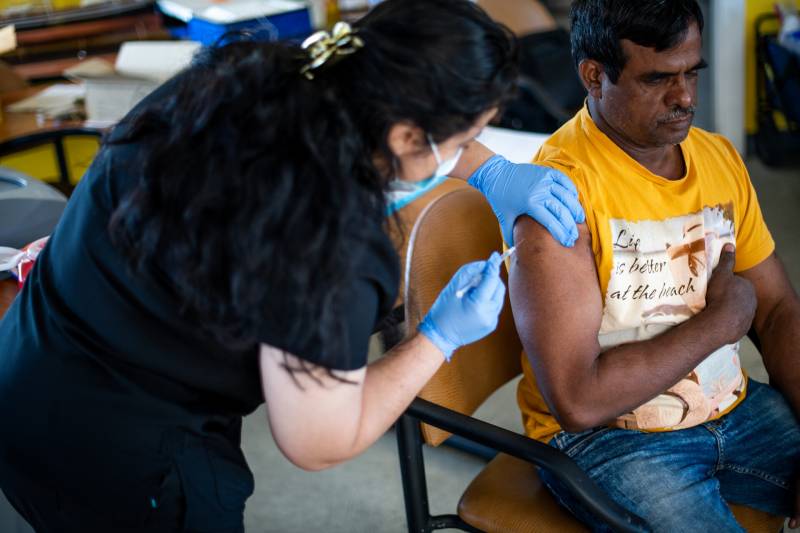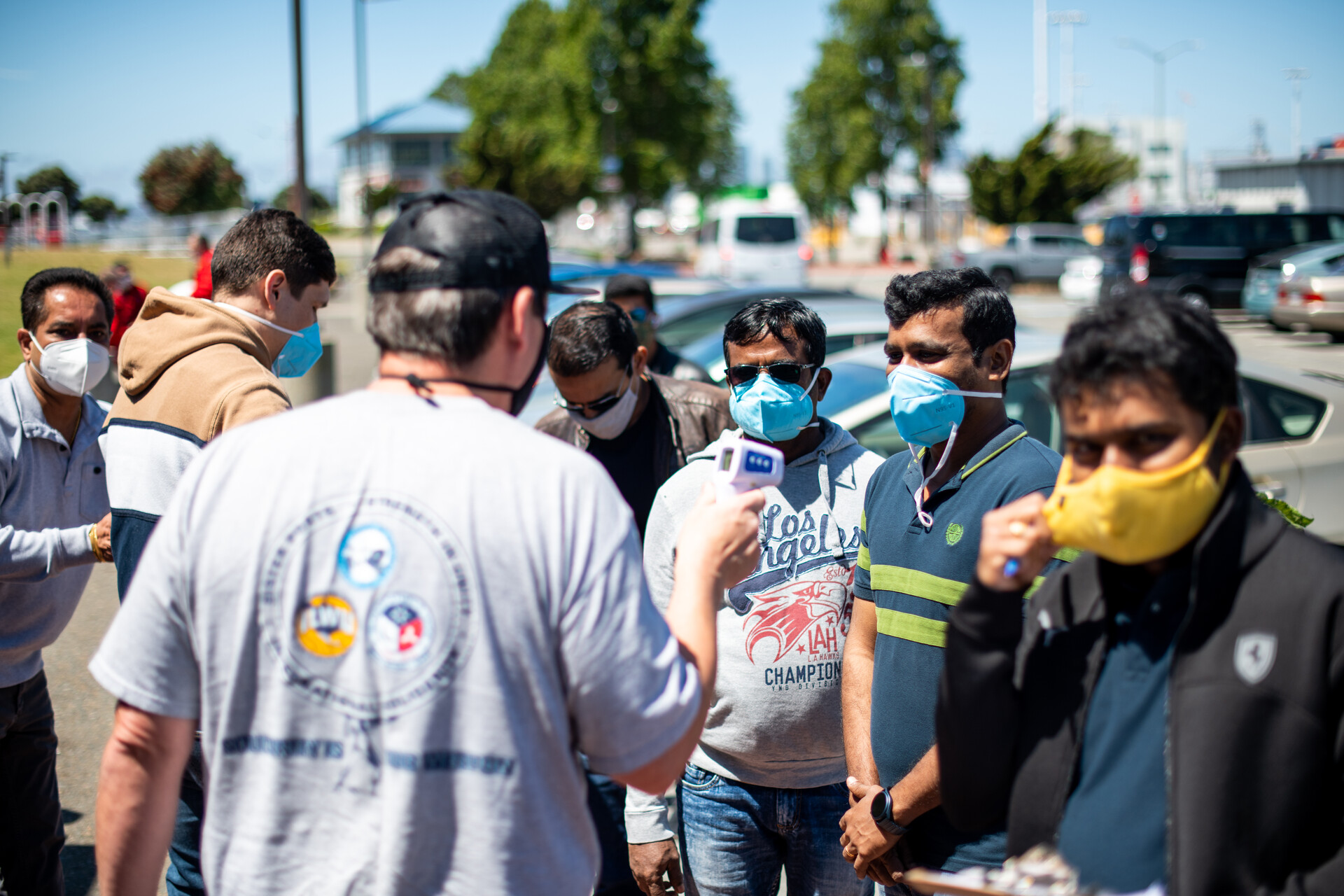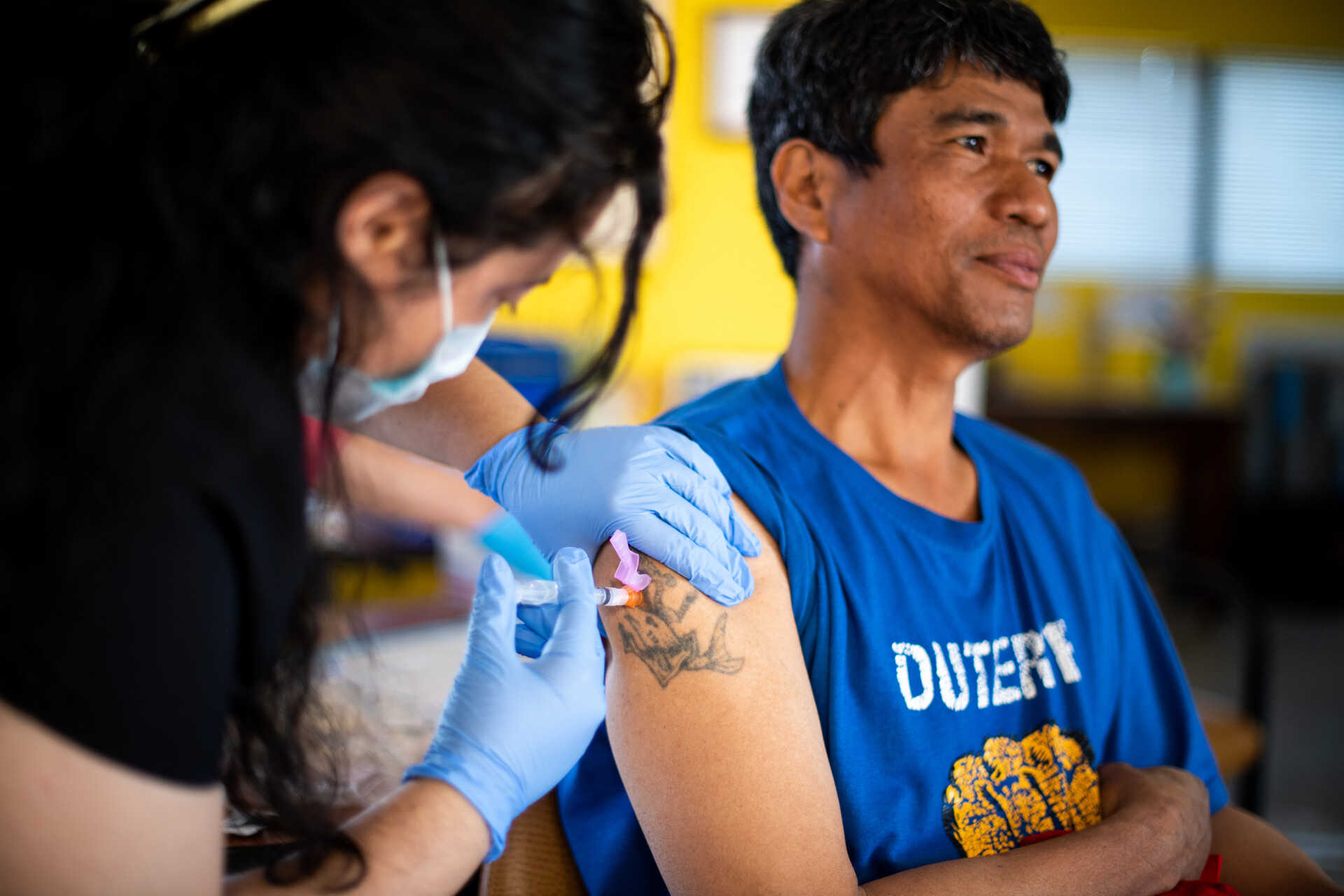Some 800 seafarers from around the world have received COVID-19 vaccinations at the Port of Oakland since May, part of an effort to ease an international crisis that has left hundreds of thousands of merchant ship crew members stuck at sea due to pandemic-related health concerns.
Stranded International Seafarers Offered COVID Vaccine at Port of Oakland

The local vaccine drive, organized by the International Maritime Center in Oakland, mirrors similar initiatives in a growing number of ports around the world to administer the single-dose Johnson & Johnson vaccine to stranded crews. Ports in India, the Philippines and Belgium have also recently launched their own programs to vaccinate stranded seafarers.
At the Port of Oakland, medical workers from Alameda County’s Health Care for the Homeless program and Contra Costa Health Services, in partnership with the health care company Curative, typically set up shop aboard docked ships, and vaccinate anyone willing to roll up their sleeves. Many crew members hail from countries that have been ravaged by the pandemic, where vaccines are still largely out of reach, said John Claassen, chairman of the International Maritime Center.

“These are people who are stuck aboard the ship, and their families are worried sick about them. In countries like the Philippines and India, they’re not getting the vaccines,” he said. “So here … they’re so happy they’re taking pictures.”
At the beginning of the pandemic, many governments shut down their borders and banned international shipping crews from coming ashore. That had devastating consequences not just for the world economy (an estimated 80% of global trade is moved by maritime transport), but also the roughly 2 million seafarers who operate the global fleet of merchant ships.
The International Maritime Organization estimates that as of March 2021, roughly 200,000 seafarers were still stranded on their ships, a logjam the group calls a humanitarian and economic crisis.

Maritime workers are a crucial but often overlooked part of the vast global shipping industry, and have been impacted particularly hard by the pandemic, said Margaret Reasoner, a volunteer with the Oakland chapter of the International Maritime Center. One deck seaman on a container ship recently told her he had been stuck at sea for 14 months, she said.
“Mariners are resilient people. They understand they’re going to be gone from their families, she said. But, “we don’t think, ‘I’ll go to work and I won’t see my family, I won’t see my kids, for 14 months.’ That’s a long time.”
Ships can’t afford to risk anyone on board contracting the virus, since containment is difficult and health care services limited.

Brian Helmle, a deckhand on the San Francisco Bay Ferry, and a member of the Inlandboatmen’s Union, recently volunteered to help vaccinate crew members of the MV Cape Orlando, docked just across the estuary in Alameda. Doing so, he said, is a good way to show international solidarity with other maritime workers.
“I have coworkers on the ferry boats who have been shipped out on deep-sea shipping lines, and they have told me stories about how hard the work is and how isolating it is,” he said. “And in times where there’s any kind of emergency, you know, health or war or anything like that, people go from being isolated to being in danger or stranded and unable to get home.”
Alameda County Health Care for the Homeless, one of the groups involved in the effort, is used to delivering vaccines to people where they are, said Seth Gomez, a senior pharmacist.
“Being a clinician first, and a pharmacist, I think it’s important that we get as many people vaccinated as possible, regardless of where they call home,” he said.
